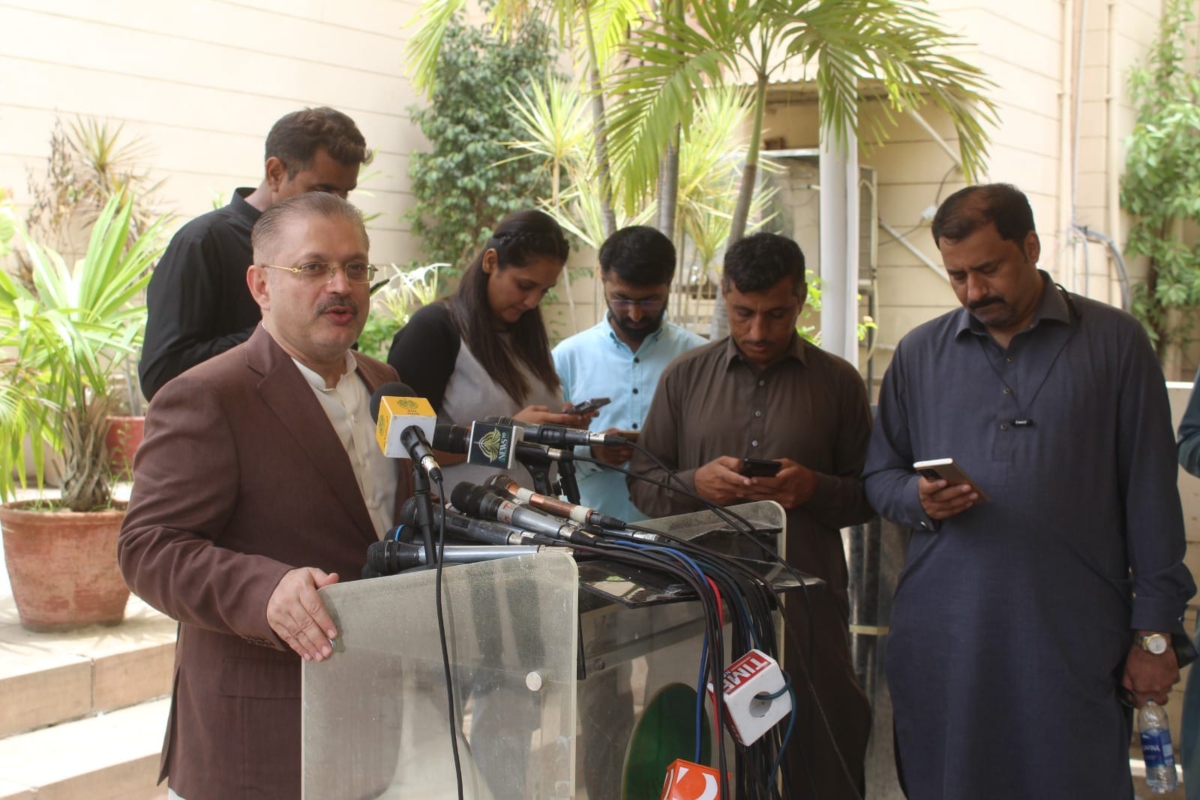
By Gohar Ali Khan
KARACHI: Rising cases of oral cancer in Karachi, Hyderabad and the rest of Sindh province has raised questions over the performance of the law enforcement agencies that are duty-bound to control manufacture and sale of harmful chewable substances such as Gutka and Mainpuri.
The poor are the most vulnerable as Gutka and Mainpuri are the only psychoactive substances within their reach.
The Sindh government banned the sale of Gutka and Mainpuri in 2019. In October last year, the Sindh High Court held hearings in a case related to violations of the law and directed the provincial police officer to crackdown on these businesses.
But the businesses continue, and poor people who consume these cheap tobacco-based drugs are at a particular risk.
Newstaj spoke to some medical experts and officials of non-governmental organizations (NGOs) to get a view of the situation. Police officers concerned in Karachi and Hyderabad divisions were approached for comment, but they did not respond.
Dr Syed Ghazanfar Hassan Taqvi, maxillofacial surgeon
The incidence of oral cancer in our region varies in terms of its causes and impact, as it is mostly prevalent among the lower classes. Paan, Gutka, Mainpuri and Naswar are cheap commodities that are easily available in the South Asian region, and seem to be the main etiological factor in the spread of oral cancer.
Curbing the sale of these products and educating the masses about their damaging effects could lead to a decline in the disease. As such, the authorities concerned must make sincere efforts to discourage the sale of these products at all levels.
The disease mainly affects young individuals from low-income groups, and as a result, poorer families lose their breadwinners. This leaves financial and emotional scars on those left behind, and thereby hampers the growth of the future generations.
The actual treatment which involves lengthy surgeries and other medical resources, could further strain an already under-resourced healthcare system. So, as the number of cases rises, resources fall short and early-age deaths increase. And even in cases where life expectancy is prolonged due to treatment, the quality of life is not the same.
Dr Hanan Muhammad, UK
Increasing cases of oral cancer are an indication of the ill-intentioned and insincere efforts of the bureaucracy to curb this menace. Unless we show seriousness as a society to combat these diseases at every level, achieving better outcomes will remain an unfulfilled dream.
I think it is very important for us to start observing an Oral Cancer Day worldwide. This will go a long way in raising awareness about causes of oral cancer, and its prevention.
Prof Dr Mohammad Shahzad, Oral Maxillofacial Department, Liaquat University of Medical and Health Sciences (LUMHS)
We call for banning all harmful chewable products in markets. How many patients can we perform surgeries on? While our population is booming, we have limited surgeons and health facilities. If not provided proper treatment, patients who are down with advanced oral cancer die within six months to two years.
International organizations have already highlighted red zones, including Karachi, Hyderabad, Thatta, Badin and some other districts of Sindh where oral cancer is spreading. They have also marked similar red zones in India, Bangladesh, Sri Lanka and elsewhere across South Asia where people consume these cheap psychoactive products.
Gutka and Mainpuri contain betel nuts, areca catechu, tobacco and lime as their main ingredients. Gutka, Mainpuri, Paan, Chhalia (betel nut) and loose tobacco are more harmful than Naswar and cigarettes, and people of Sindh consume them more frequently, which is why cases of oral cancer are rising in the province. I and my team conduct 10 to 12 oral surgeries a month, and in most cases the patients are found to be inflicted with cancer. Surprisingly, we have also come across six-to-eight-year-old children who go down with serious oral complications due to chewing betel nuts with their elders.
Usually, patients visit clinics of general medical practitioners who are unable to recognize symptoms of cancer, and this causes delays in proper treatment. Unfortunately, we do not have enough trained doctors and medical staff in the country to effectively handle the hospital traffic. As for private sector hospitals, they charge anywhere between Rs 1.8 million to Rs 5 million for a case, which is way beyond the capacity of even the middle classes, much less the lower class.
Suleman G Abro, CEO Sindh Agricultural &Forestry Workers Coordinating Organization (SAFWCO)
The source of this evil is known to everyone concerned, from the police and the health ministry to the Pakistan Medical Association (PMA) and the individual medical practitioners, but they are unable to control it.Thatta, Malir and the surrounding areas produce ample Paan (betel palm ) while Chhalia (betel quid) is smuggled in due to lax border controls. Paan is slightly more expensive than Mainpuri and Gutka.
People who trade in this stuff install machines at their homes where they crush and mix ingredients to make Puria and Gutka.Poor people who cannot afford Paan and cigarettes go for Gutka and Puria. They consume these products multiple times a day to get artificial energy. Apart from men and boys, a large number of women and girls are also known to have gotten hooked to these products in the interior of Sindh.
We know that private ambulances are also used to move these products from one place to another. Recently there was a report in the media as well. But instead of going after the main criminals involved in this trade, the police would rather pick up a neighborhood Puria vendor and his children to show their efficiency.
The health ministry should take stern action, the PMA should raise its voice, and doctors should wage a campaign to force the government to take action against these harmful networks.





Good Awareness 👍
This is a burning issue of Sindh these days. i must say this is the investigative news.
Well done! Oral cancer among the poor is increasing day by day specially in Sindh and rest of Pakistan and other South Asian countries like India, Bengladesh and the like. The government must take actions by curb Gutka, Mainpuri, Naswar and Paan which are very common.
Mouth cancer is a matter of grave concerns the poor people could not afford the costly treatment of the cancer and there are limited medical practitioners in comparison with rising cases of patients in the country.